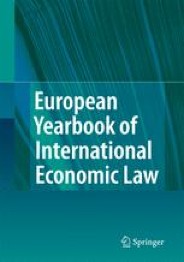The Federal Court Legislation Amendment Rules 2022 (Cth) (‘Amendment Rules’) came into force on 13 January 2023. Among other things, they amend the Federal Court Rules 2011 (Cth) (‘FCR’) by repealing division 10.4, which dealt with service outside Australia. The Amendment Rules replace the old division 10.4 with a new one, which brings the Federal Court’s approach to service outside Australia into alignment with all other Australian jurisdictions, except for Western Australia and the Northern Territory.[1]
The previous approach to service outside Australia in the Federal Court
Historically, Australia’s superior courts have not been uniform in their approach to service outside the jurisdiction and outside Australia. The Federal Court’s approach was somewhat unique. Unlike the position in some of the State Supreme Courts,[2] leave to serve outside Australia[3] was required before service (FCR r 10.43(2)). Nonetheless, if leave was not obtained beforehand, service could be confirmed after the fact if sufficiently explained (FCR r 10.43(6)–(7)).
Leave to serve turned on three conditions: the court had subject matter jurisdiction, the claim was of a kind mentioned in the rules, and the party had a prima facie case for any or all of the relief claimed: FCR r 10.43(4). Even if those elements were satisfied, the court may have refused leave to serve in exercise of a ‘residual discretion’: Tiger Yacht Management Ltd v Morris (2019) 268 FCR 548, [100].
The second element, that the claim is of a kind mentioned in the rules, directed attention to FCR r 10.42. That rule set out pigeonholes or connecting factors that are familiar grounds of direct jurisdiction. For example, service may be permitted for a proceeding based on a cause of action arising in Australia (item 1), or where the defendant has submitted to the jurisdiction (item 19).
Some of the connecting factors might be described as exorbitant. For example, service may have been permitted where the proceeding was ‘based on, or seeking the recovery of, damage suffered wholly or partly in Australia caused by a tortious act or omission (wherever occurring)’ (item 5). Reid Mortensen, Richard Garnett and Mary Keyes commented, ‘[i]n effect, [this ground of service] allows service outside Australia merely because of the plaintiff’s personal connection—usually be reason of residence—with the forum, despite the complete absence of any connection between the events or the defendant on the one hand, and the forum on the other’.[4]
Combined with Australian courts’ unique approach to forum non conveniens (see Puttick v Tenon Ltd (2008) 238 CLR 265), the FCR provided plenty of room for establishing personal jurisdiction over foreign defendants in matters with foreign elements, even where those matters had strong connections to foreign jurisdictions. That position continues under the new approach effected by the Amendment Rules in the amended FCR.
The new approach
The Amendment Rules provide in a note to the new div 10.4: ‘t]his Division contains rules that have been harmonised in accordance with the advice of the Council of Chief Justices’ Rules Harmonisation Committee’. Those rules have been in force in New South Wales and other Australian jurisdictions for some years. When the rules changed in New South Wales in late 2016, Vivienne Bath and I explained the significance for that State: Michael Douglas and Vivienne Bath, ‘A New Approach to Service Outside the Jurisdiction and Outside Australia under the Uniform Civil Procedure Rules’ (2017) 44(2) Australian Bar Review 160.
As regards the Federal Court, considering the previous approach, some of the notable changes include the following.
First, in most cases, leave is not required before service, provided that the case comes within the scope of (new) defined grounds of direct jurisdiction: FCR r 10.42.
Second, the grounds of direct jurisdiction have changed: FCR r 10.42. Many of the changes seemingly involve a simple a re-wording or a re-structure rather than anything radical, although I am sure that the case law will tease out differences of substance in coming months.
One of the new grounds is worth highlighting. The new FCR r 10.42(j) provides:
(j) if the proceeding arises under a law of the Commonwealth, a State or a Territory, and:
(i) any act or omission to which the proceeding relates was done or occurred in Australia; or
(ii) any loss or damage to which the proceeding relates was sustained in Australia; or
(iii) the law applies expressly or by implication to an act or omission that was done or occurred outside Australia in the circumstances alleged; or
(iv) the law expressly or by implication confers jurisdiction on the Court over persons outside Australia (in which case any requirements of the law relating to service must be complied with);
FCR r 10.42(j)(iii) could provide a basis for jurisdiction over subject matter with very limited connection to Australia, provided an Australian legislature has sufficiently extended the territorial operation of a statute. This pigeonhole could give rise to some more interesting questions about the proper approach to identification of the applicable law where forum statutes are involved in the Australian context.[5]
Third, even if the proceeding does not come within one of the grounds of direct jurisdiction, service outside Australia may still be permitted with leave: FCR r 10.43. Leave requires the Court to be satisfied that the proceeding has a real and substantial connection with Australia, Australia is an appropriate forum for the proceeding, and in all the circumstances the Court should exercise jurisdiction: FCR r 10.43(4)(a)–(c).
Fourth, once a person is served outside Australia, that person may apply to stay or dismiss the proceeding, or set aside service: FCR r 10.43A(1). The Court may make an order to that effect if satisfied service of was not authorised by these Rules, Australia is an inappropriate forum for the proceeding, or the claim has insufficient prospects of success to warrant putting the person served outside Australia to the time, expense and trouble of defending it: FCR r 10.43A(2)(a)–(c). This mechanism is introduced with the title, ‘Court’s discretion whether to assume jurisdiction’.
The second ground, that Australia is an inappropriate forum, turns on application of the ‘clearly inappropriate forum’ test of the Australian forum non conveniens doctrine: Chandrasekaran v Navaratnem [2022] NSWSC 346, [5]–[8]; Sapphire Group Pty Ltd v Luxotico HK Ltd [2021] NSWSC 589, [77]–[80]; Studorp Ltd v Robinson [2012] NSWCA 382, [5], [62].
Fifth, if service on a person outside Australia in accordance with the new provisions was not successful, the party may apply to serve the person substituting another method of service: FCR r 10.49(a). This may prove particularly useful for applicants chasing rogues who have absconded overseas. It might allow for service on a person outside Australia by email or even social media, contrary to historical practice: see Yemini v Twitter International Company [2022] FCA 318, [5].
Comment
I expect that the Amendment Rules will be welcomed by litigators who frequent the Federal Court of Australia. Doing away with the need to seek leave in advance will increase efficiency and save some costs. Lawyers on the east and south coasts may appreciate not having to be across substantive differences as regards long-arm jurisdiction between the Federal Court and State Supreme Courts. (Those in glorious Western Australia continue to be in a different / superior position.)
Private international law scholars may be less enthusiastic. Writing on the 2016 equivalent reforms in New South Wales, Andrew Dickinson lamented the tenuous connection that could justify long-arm jurisdiction under the amended Uniform Civil Procedure Rules 2005 (NSW). Among other things, he noted that the ‘service without leave’ approach means that considerations of forum non conveniens might only arise if an application is brought by a person served contesting jurisdiction (under the equivalent of the new FCR r 10.43A(1)), costing them time and cost with respect to a matter with minimal connection to the forum.[6] That would be a fair objection to the new position in the Federal Court. I would argue, however, that the Federal Court’s new approach to long-arm service is a sensible innovation to better equip the Court to deal with the realities of modern commercial life (see Abela v Baadarani [2013] 1 WLR 2043, [53]). Australian courts are increasingly called on to deal with matters with a foreign element—their rules should adapt accordingly.
One of the more significant impacts of the Amendment Rules will concern a case that is currently before the High Court of Australia: Facebook Inc v Australian Information Commissioner & Anor (Case S 137/2022). Jeanne Huang and I previously blogged other decisions that have ultimately led to this appeal. Among other things, the American company behind Facebook (now Meta Platforms Inc) is challenging its service outside Australia in a proceeding brought by Australia’s privacy regulator in the wake of the Cambridge Analytica scandal. The rules on which the appeal depends are no longer in force. If the High Court’s previous grant of special leave to appeal is maintained, the forthcoming decision will be a new leading authority on long-arm jurisdiction in Australia.
Dr Michael Douglas is a Senior Lecturer at the University of Western Australia and a Consultant at Bennett, a litigation firm in Western Australia
[1] Civil Procedure Rules 2006 (ACT) div 6.8.9; Supreme Court Rules 2000 (Tas) div 10; Supreme Court Civil Rules 2006 (SA) pt 4 div 2; Supreme Court (General Civil Proceedings) Rules 2015 (Vic) O 7 pt 1; Uniform Civil Procedure Rules 1999 (Qld) pt 7 div 1; Uniform Civil Procedure Rules 2005 (NSW) pt 11, sch 6.
[2] Leave to serve is still required in the Supreme Court of Western Australia. See Rules of the Supreme Court 1971 (WA) Order 10. See further M Davies, AS Bell, PLG Brereton and M Douglas, Nygh’s Conflict of Laws in Australia (LexisNexis Butterworths, 20th ed, 2020) ch 3.
[3] Except with respect to service in New Zealand. See Trans-Tasman Proceedings Act 2010 (Cth).
[4] Reid Mortensen, Richard Garnett and Mary Keyes, Private International Law in Australia (LexisNexis Butterworths, 4th ed, 2019) 63–4.
[5] See Michael Douglas, ‘Does Choice of Law Matter?’ (2023) Australian International Law Journal (forthcoming).
[6] Andrew Dickinson, ‘In Absentia: The Evolution and Reform of Australian Rules of Adjudicatory Jurisdiction’ in Michael Douglas, Vivienne Bath, Mary Keyes and Andrew Dickinson (eds), Commercial Issues in Private International Law (Hart, 2019) 13, 42.


 The editors of the European Yearbook of International Economic Law (EYIEL) welcome abstracts from scholars and practitioners at all stages of their career for the EYIEL 2023. This year’s focus section will be on European and International (Public) Procurement and Competition Law. Next to this, in Part II the EYIEL will consider Current Challenges, Developments and Events in European and International Economic Law.
The editors of the European Yearbook of International Economic Law (EYIEL) welcome abstracts from scholars and practitioners at all stages of their career for the EYIEL 2023. This year’s focus section will be on European and International (Public) Procurement and Competition Law. Next to this, in Part II the EYIEL will consider Current Challenges, Developments and Events in European and International Economic Law.